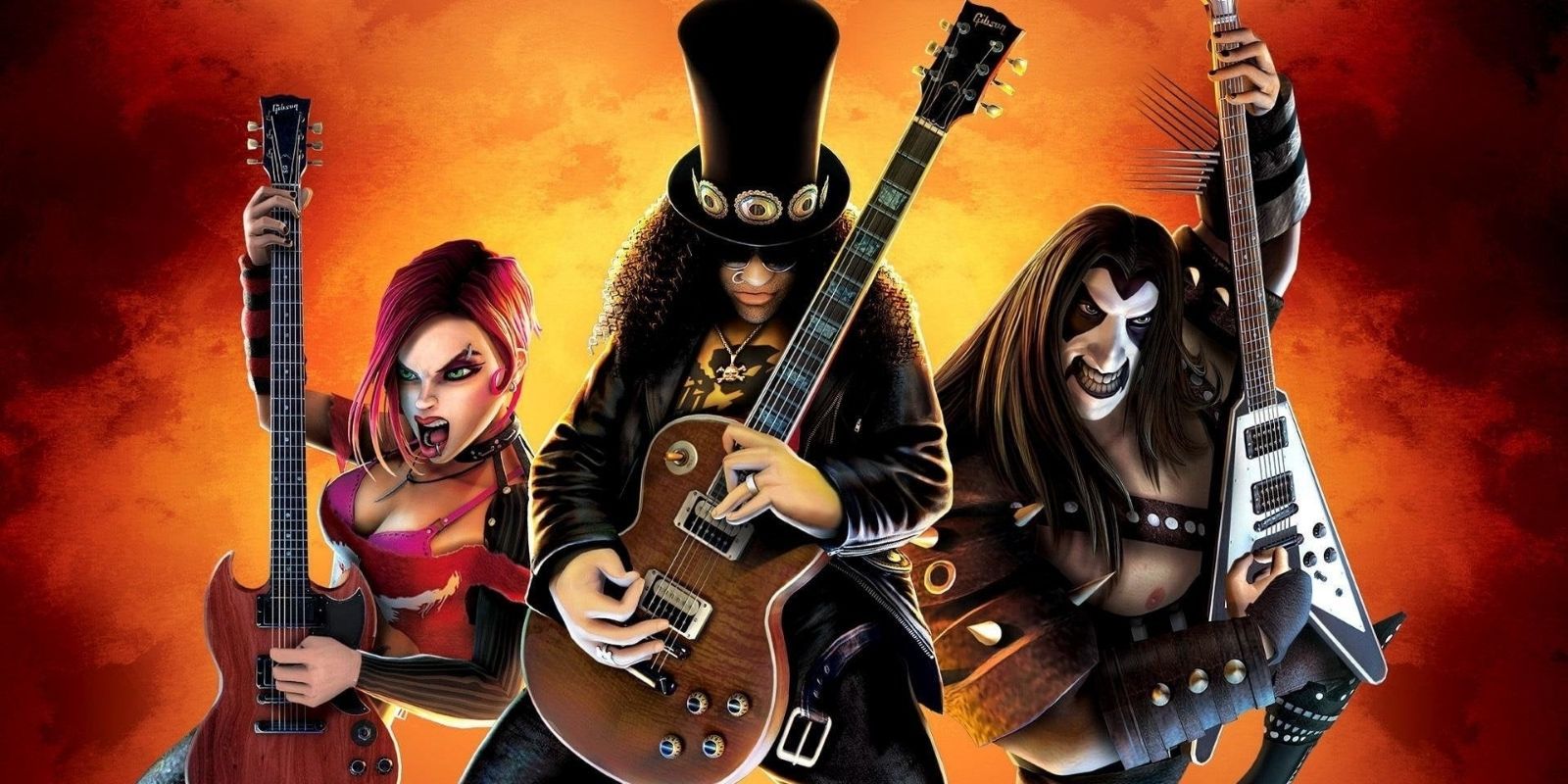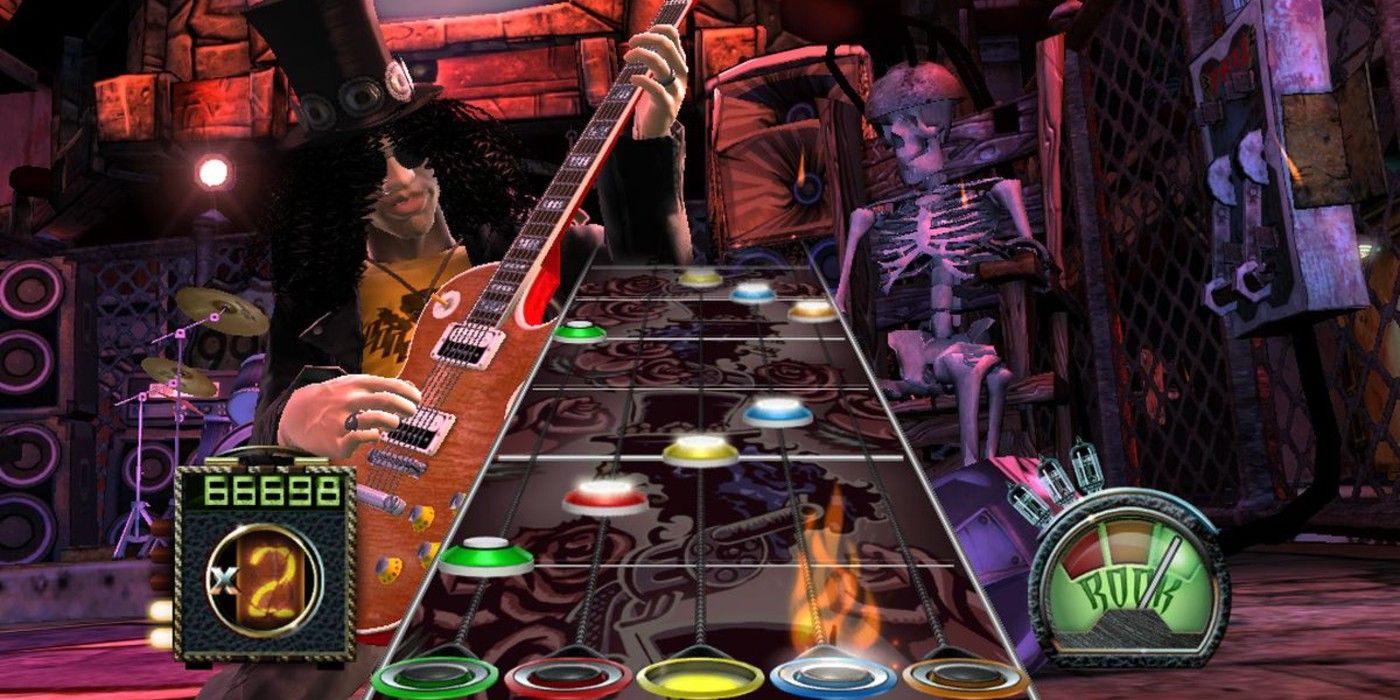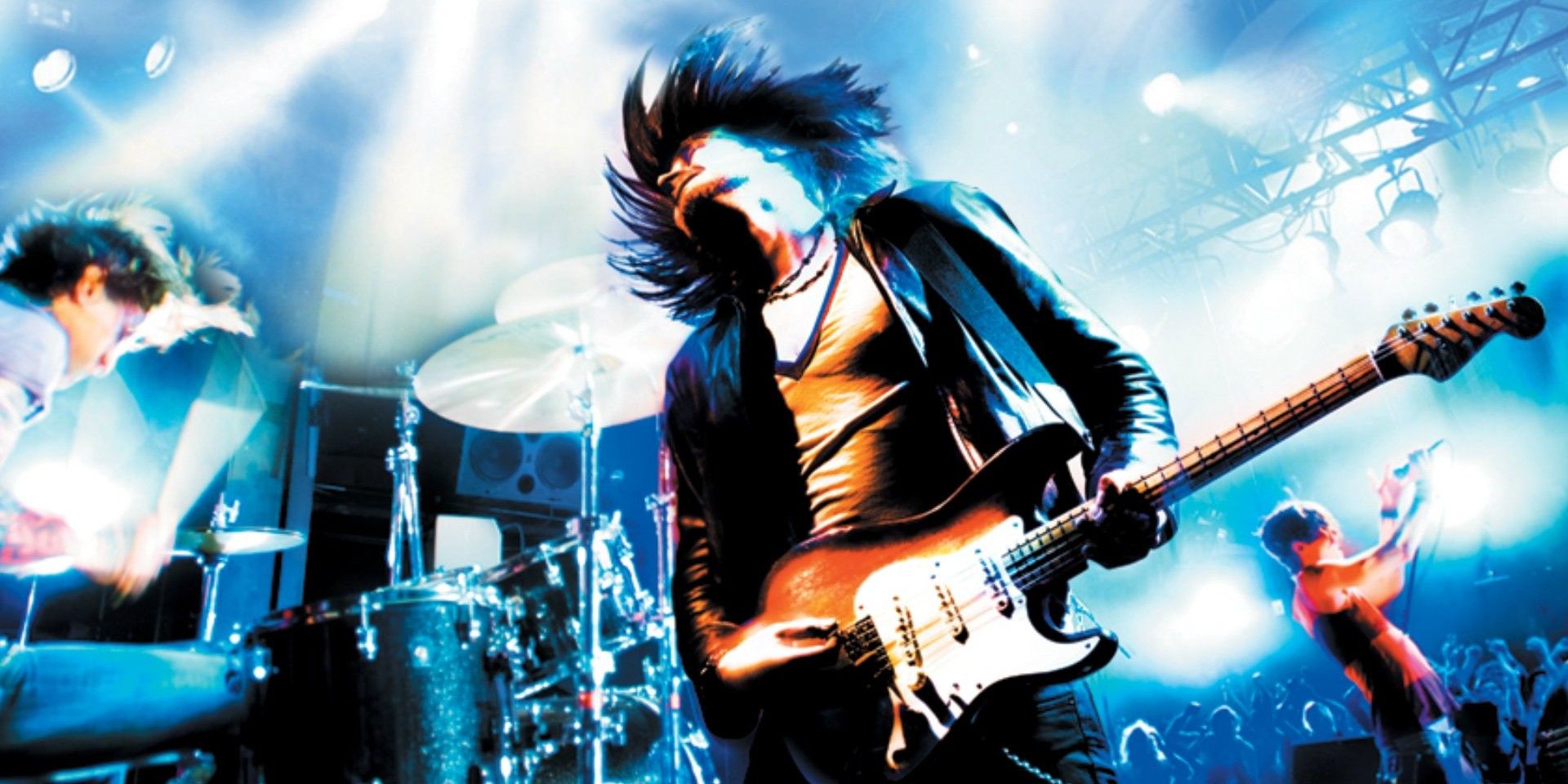There was a time when Guitar Hero and Rock Band were two of the biggest games on the market. Rhythm games had existed since the arcade era, and they hold a niche fan base to this day. Guitar Hero revolutionized the genre, providing an addictive and fun title with a killer soundtrack that everyone could play along with. Likewise, Rock Band furthered the genre by adding more instruments and a microphone to let more people play together. Along with Call of Duty, Rock Band and Guitar Hero were must-buy games year in, year out.
Unfortunately, neither series could stay on top. Despite the games constantly adding new songs and features and eventually releasing complete reboots, Guitar Hero and Rock Band are sadly no more. Neither franchise has had a mainline entry since 2015. Although Rock Band released a VR spin-off in 2017, it wasn't enough to save the series. Both franchises were responsible for some of the greatest rhythm games ever, but have gamers seen the last of them?
The Rise and Fall of Guitar Hero and Rock Band
Rhythm games exploded during the arcade era, and it was the arcade rhythm games that inspired Guitar Hero and later Rock Band. Guitar Hero was the first to take the music game experience from the arcade and bring it into people's homes. By packaging a guitar controller and the game together, gamers could feel like they were stars of their own concerts. Harmonix simplified the "gems moving down the screen" mechanic for Guitar Hero, which made it much easier and more intuitive for players to pick up the guitar and play. The studio also refined and added to this mechanic by adding drums, bass, and vocals to the game in the Rock Band series.
Both series suffered from oversaturation, unfortunately. When a full band was implemented into a game rather than a single guitar, it more than doubled the number of extra controllers that had to be manufactured. The games also quickly became yearly series that saw a new installment or spin-off each year. This, in turn, meant more controllers needed to be made. Since players really only needed one set of controllers, they didn't need to buy the controller set for each new entry. That meant that a lot of the plastic controllers wasted away on store shelves. Despite adding new features with almost every entry, fans eventually grew tired of the series. They lost interest in buying new installments, and they resented the large plastic controllers taking up space in their homes.
Guitar Hero and Rock Band Leave Behind an Impressive Legacy
While each franchise fought to stay afloat on the market, neither was able to reinvent itself in a way that was appealing to fans. Ironically, there are still Guitar Hero games set up in arcades around the world. Of course, the advantage of arcade rhythm games is that they don't have to be updated with a new entry yearly. That is why several rhythm arcade games like Dance Dance Revolution and Taiko no Tatsujin tend to work better in arcades. Still, Guitar Hero and Rock Band left their marks on the world and almost every rhythm game that has come since has borrowed something from either series.
Guitar Hero and Rock Band are not gone forever. The titles were fantastic fun, and they were responsible for making a lot of children's birthdays epic and adult game nights memorable. Nostalgia is a powerful thing, and it likely won't be long before people start reminiscing about playing Guitar Hero or Rock Band with their friends. Eventually, that nostalgia may just be powerful enough for a studio to green-light new entries in the franchises. Cost and manufacturing were major problems plaguing the original titles, but if the studio can find a way to mitigate that, Guitar Hero and Rock Band might return to stay.



